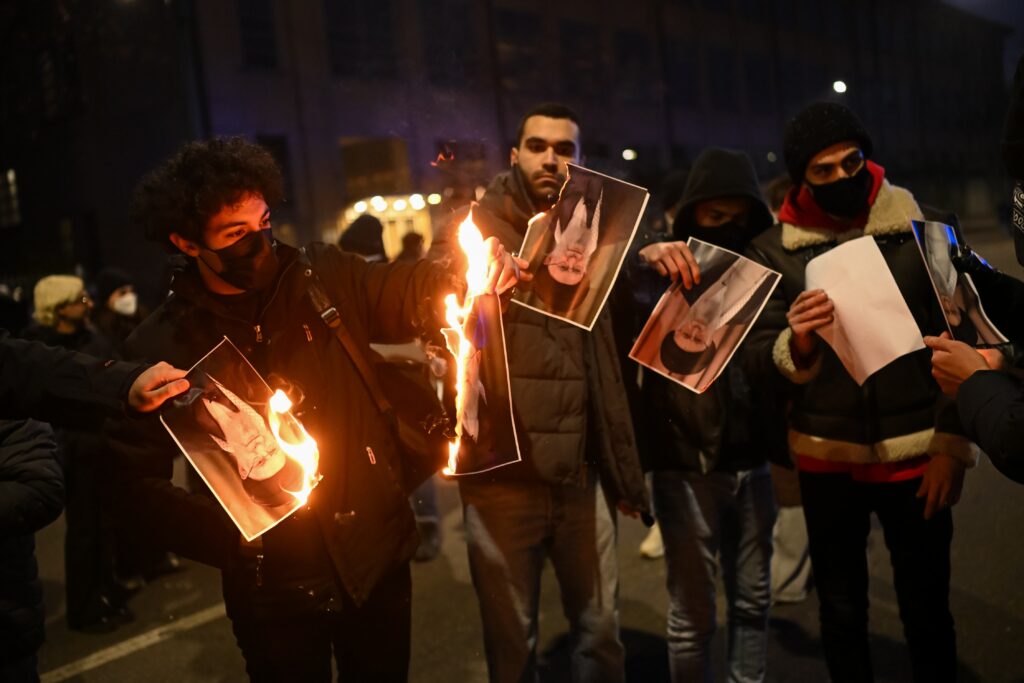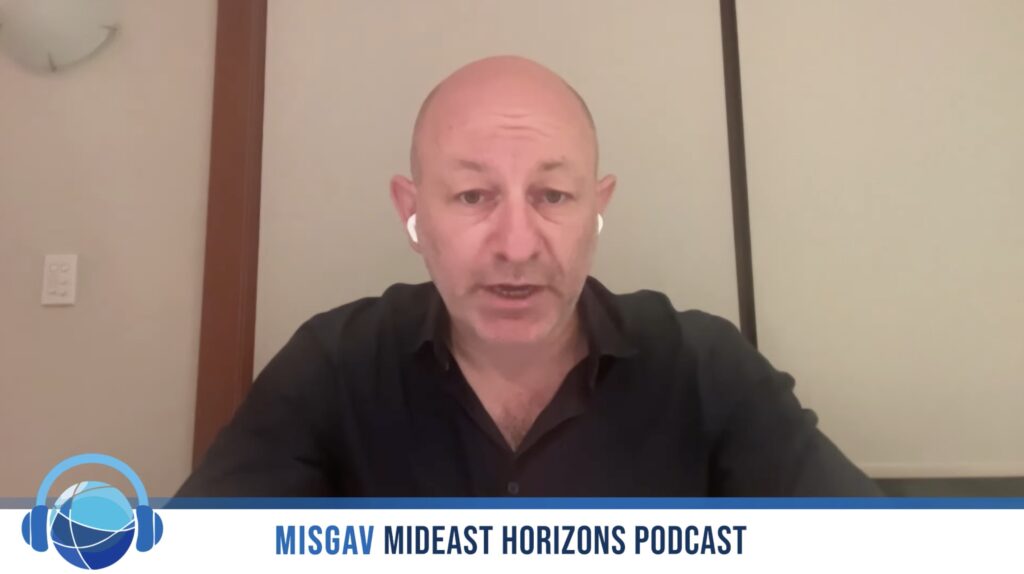IN THE MEDIA
The facts and the hearsay on Israel
March 19, 2012 | Ahron Shapiro

Ahron Shapiro
ABC – The Drum
19 March 2012
Terror sponsorship has been around for as long as terrorism.
It’s a phenomenon that has been widely recognised, which allows a group to use terrorism as a tool while insulating themselves from direct responsibility. As an added benefit, in some cases it allows for additional logistical possibilities in planning a terror attack.
Naturally, nobody should be fooled: a terror sponsor who provides planning and support for a terror attack is as responsible as those who are sent to pull the trigger.
Here’s an example. In May 1972, three members of the Japanese Red Army attacked passengers at Tel Aviv’s Lod Airport, spraying them with automatic weapons fire and tossing grenades at them. Twenty-six people were killed, and 80 injured. The three attackers, as stated before, were not Palestinians, but were executing a plan hatched by the Popular Front for the Liberation of Palestine.
In another more recent example, an investigation last September by the Israeli Defence Forces determined that Gaza’s Popular Resistance Committee (PRC) had planned and sponsored a coordinated August 18, 2011 attack from the Sinai into Israel’s Negev border region near Eilat that killed eight Israelis and wounded 40.
Initially, Israel had believed that some Gazans may have actively taken part in the attack, however, according to the outcome of the IDF investigation, the evidence later pointed to Egyptian-born terrorists, sponsored by the PRC.
Some people have difficulty making the connection between the terror sponsor and the terror attack. Anti-Israel commentator Michael Brull is clearly one of them. In a recent article for ABC’s The Drum Brull uses his own scepticism about the PRC’s role in the August attack as the fulcrum for a libellous accusation that Israel is in the business of murdering innocent Arabs.
Writes Brull:
“That’s the thing about being Israel. It can kill Arabs whenever it feels like, make up any story it likes, and still get an easy ride in the Western media.”
It is difficult to overstate just how reckless and hideously offensive Brull’s assertion is. In order to make such a claim using the Eilat attack as evidence, Brull needs the reader to believe, not only that there was no connection between the PRC and the Eilat attack, but that the Israeli government and military knew then and know now the PRC was not involved.
Brull makes no effort to prove this, and couldn’t because it isn’t remotely true.
The first thing Brull does is dismiss outright the notion that the PRC sponsored the terror attack.
Brull writes:
The new claim about the PRC funding the attackers should be treated with the same respect as the earlier claim that they launched the attack in the first place.
Ironically, he’s right here: They should get the same respect, which is to say, they should be treated for what they were: logical progressions based on the solid intelligence Israel had at the time of the attack and the results of their own investigation.
Now Brull, of course, spends his entire essay trying to argue that Israel’s explanations for why it has attacked Palestinian terrorists in Gaza are fabrications, so here I understand his statement as a dismissal of Israel.
In his strongest attempt to bolster his argument that the PRC had no role in the Eilat attack, Brull questions why the group refused to take responsibility for the attack.
“It is hard to imagine why they would deny responsibility for an attack they supported, if they were responsible.”
While it’s true that terror groups usually do take credit for their attacks, there have been many cases where they don’t. The are ample reasons for this. Brull explores none of them.
Brull, who quotes a blog post from September 21, 2011 by Time Magazine’s Karl Vick in support of his argument that the PRC was not involved, omits mentioning the parts of Vick’s very same story which explains why the PRC might want to duck responsibility for such an attack.
Vick wrote in his blog post:
The Popular Committees, a militant group that ranks third in size behind Hamas and Islamic Jihad in Gaza, insisted it was not in fact responsible – although a spokesman for the group also acknowledged to TIME that Gaza militants have been warned by Egyptian authorities (whom they want to cultivate) not to carry out attacks from their territory.
Vick was likely referencing a discussion he had earlier that month with PRC spokesman Abu Mujahed. That meeting was discussed at some length in a report Vick wrote for the print magazine on September 8, 2011.
Cairo is in flux, and every group in the area fears alienating the country, whose cooperation is crucial. In the judgment of Israeli intelligence officials, that explains why the PRC denies its own operation: to avoid enraging Cairo by admitting it carried out a terrorist attack from its territory.
Asked if a militant group in Gaza would give its government advance notice of an attack, [PRC spokesman] Abu Mujahed nearly chokes on a grape.
“Absolutely not,” he says, laughing, “You have to understand, the government in Gaza, they do not wish to see another war, and they will prevent giving Israel an excuse for one at any price. They will allow retaliation but not initiating.”
As his article comes to a close, Brull builds a straw-man argument, claiming that Israel justified its strike on al-Qessi as further retribution on the planners of the Eilat attack.
One wonders how many “terrorists” from the PRC or from Gaza Israel will kill for that attack in August – and the death toll is currently well above 30 – before journalists stop uncritically repeating Netanyahu’s claims of successfully thwarted and assassinated terrorists… The question we must ask our intrepid Middle East correspondents is: how many more masterminds of the Eilat attack last year can Israel kill, before you stop printing its self-contradictory justifications?
The fact is, Israeli officials said no such thing. The IDF told reporters that the PRC terrorists targeted last week were planning an attack similar to the one carried out in August. The IDF did not say Israel was acting in retribution for the August attack, or that their target had planned that attack.
Brull makes it plain that he does not believe such an attack was actually being planned. In fact, Brull does not acknowledge in his article the fact that the PRC perpetrates and sponsors terror.
When the PRC said they would attack Israel, Brull says:
“This is likely the bluster which Palestinian militant groups specialise in.”
Bluster, no doubt, like the kind that the PRC used to kill Israeli Tali Hatuel, a pregnant woman, along with her four daughters, aged 2 to 11, in a roadside attack in 2004.
Or was it bluster like the kind that kidnapped Israeli soldier Gilad Shalit in 2006, an attack the PRC took credit for. In fact, the PRC leader Israel killed on Friday, Zuhair al-Qaisi, boasted about being involved in the Shalit kidnapping publicly in a series of interviews.
Brull also neglects to mention that the terrorists in the Eilat attack were found with gear prepared to kidnap another Israel soldier.
Furthermore, Brull discounts Palestinian rockets as no more than a nuisance. His talk of “rockets being fired at Israelis who are forced into bomb shelters for at least a week” sounds more like he is describing a bout of inclement weather than a deadly, indiscriminate barrage of long-range projectile explosives.
Brull offers no real evidence to support his scepticism that a Palestinian attack was in the offing besides his prejudice that all Israeli pronouncements should be automatically treated as lies.
Brull makes a fuss over the unsurprising fact that some media reports regarding Israeli intelligence about the inner workings of Palestinian terror organisations appear to be in contradiction or are later changed.
In doing so, he ignores the fact that news reports based on intelligence are inherently sketchy and difficult to verify, whether they are in Israel or anywhere else.
Instead, Brull has us believe that Israel’s leaders undertook an action which they knew would likely lead to massive rocket retaliation, sending a million Israelis to bomb shelters, and leading to considerable Israeli property damage, and some injuries, just for the fun of it – as if Israeli voters would not punish them at the polls if they did so without reasons. And to undermine the perception that Israel’s targets posed a terror risk, he also insists we must treat what the terrorist groups say as lies as well – “mere bluster”.
When you come to the realisation that the foundation for Brull’s reasoning is built upon nothing more than his own unsubstantiated hearsay, it becomes to me obvious that Brull’s arguments are as flimsy as a house of cards.
They stem from the sort of conspiracy theories masquerading as analysis that one ends up with when prejudice is allowed to crowd out information-gathering, reason, and any genuine attempt to look at the statements, motivations, and strategic positions of the actual parties involved.
Ahron Shapiro is a policy analyst for the Australia/Israel & Jewish Affairs Council and the former International News Editor for the Australian Jewish News.
Tags: Israel





